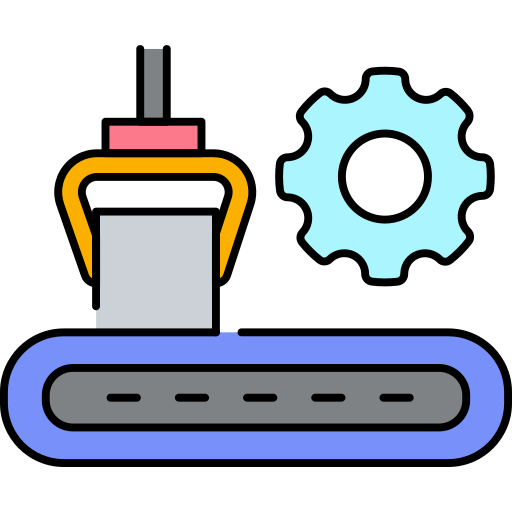CRM for mechanical engineering and metallurgy
CRM (Customer Relationship Management) is a powerful tool for companies in the manufacturing industry, including the fields of engineering, machinery, and metallurgy. With CRM, companies can manage customer interactions, track sales leads, and improve customer retention. By implementing a CRM system, companies can better understand customer needs and preferences, create targeted marketing campaigns, and improve overall customer satisfaction. In addition, CRM can help streamline internal processes, such as inventory management and order fulfillment, resulting in increased efficiency and profitability.
Here is an expanded list of CRM capabilities for the manufacturing industry, specifically in the fields of machinery and metallurgy:
- Sales Management: CRM systems can track and manage the entire sales process, from lead generation to closing deals, helping manufacturers to increase revenue and improve customer retention.
- Customer Service: CRM can help manufacturers improve customer satisfaction and loyalty by providing a platform for handling customer complaints, inquiries, and support requests.
- Marketing Automation: CRM software can be used to automate marketing campaigns, such as email and social media marketing, helping manufacturers to reach new customers and generate more leads.
- Inventory Management: CRM can help manufacturers manage their inventory levels and streamline the ordering process, ensuring that they have the right products in stock to meet customer demand.
- Production Planning: CRM systems can help manufacturers to plan their production schedules and optimize their resources, ensuring that they can meet customer demand while minimizing costs.
- Supply Chain Management: CRM can be used to manage the entire supply chain, from raw materials to finished products, helping manufacturers to improve their efficiency and reduce costs.
- Quality Control: CRM can be used to track product quality and identify defects, helping manufacturers to improve their products and reduce the risk of recalls.
- Field Service Management: CRM can help manufacturers manage their field service operations, such as dispatching technicians and tracking service requests, improving customer satisfaction and reducing downtime.
- Business Intelligence: CRM systems can provide manufacturers with valuable insights into their business operations, such as sales trends, customer preferences, and production efficiency, helping them to make informed decisions and improve their performance.
- Mobile CRM: With mobile CRM, manufacturers can access their customer data and manage their operations from anywhere, improving their flexibility and responsiveness to customer needs.
In summary, CRM (Customer Relationship Management) software can provide numerous benefits for manufacturers in the machinery and metallurgy industries. These benefits include managing the entire sales process, improving customer service and satisfaction, automating marketing campaigns, streamlining inventory management, planning production schedules, managing the supply chain, tracking product quality, managing field service operations, providing business intelligence, and enabling mobile access to customer data. By utilizing a CRM system, manufacturers can improve their efficiency, reduce costs, increase revenue, and enhance their overall performance.
Pricing CRM for engineering and metallurgy #
Solutions "CRM for mechanical engineering and metallurgy" #
Features CRM for engineering and metallurgy #
Integrators CRM for engineering and metallurgy #
This is a list of our partners who have experience or industry solutions in the area "CRM for engineering and metallurgy". They can build a custom CRM or ERP system for you on the OneBox platform.


















